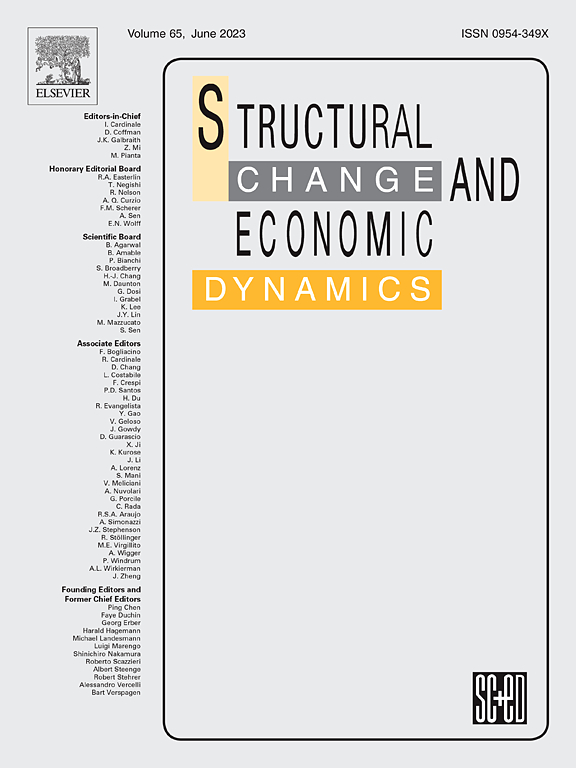欧盟新成员国的技能偏见和工资不平等:实证调查
IF 5.5
2区 经济学
Q1 ECONOMICS
引用次数: 0
摘要
我们使用来自EU- silc数据库的个人收入和教育水平数据来调查欧盟新成员国的收入分配和工资两极分化趋势。我们不确认在美国或其他发达国家已经观察到的工资和就业方面的工作两极分化的存在。我们发现,在教育升级的背景下,技能溢价正在下降,尤其是在捷克、波兰、匈牙利和斯洛伐克。与技能偏向的技术变革假设相反,回归结果并没有证实对高技能工人的需求存在重大转变,并表明工资动态是由与技能和劳动力市场制度的相对供应增长相关的替代效应相结合引起的。尽管有描述性证据,但我们的研究结果并没有证实在被调查国家中,更高的全球价值链参与对劳动力市场的预期影响。本文章由计算机程序翻译,如有差异,请以英文原文为准。
Skill-bias and wage inequality in the EU New Member States: Empirical investigation
We use individual-level data on income and education level from the EU-SILC database to investigate the trends in income distribution and wage polarization in the EU New Member States. We do not confirm the existence of job polarization in wages and employment that has been observed in the United States or other developed countries. We find a decreasing skill premium, particularly in Czechia, Poland, Hungary, and Slovakia, in the context of educational upgrading. Contrary to the Skill-Biased Technological Change hypothesis, the regression results do not confirm the existence of a significant shift in demand for high-skilled workers and suggest that the wage dynamics were caused by a combination of the substitution effect linked to the growing relative supply of skills and labour market institutions. Despite descriptive evidence, our results do not confirm the expected effect of higher Global Value Chain involvement on the labour markets in the investigated countries.
求助全文
通过发布文献求助,成功后即可免费获取论文全文。
去求助
来源期刊

Structural Change and Economic Dynamics
ECONOMICS-
CiteScore
9.60
自引率
4.90%
发文量
159
期刊介绍:
Structural Change and Economic Dynamics publishes articles about theoretical, applied and methodological aspects of structural change in economic systems. The journal publishes work analysing dynamics and structural breaks in economic, technological, behavioural and institutional patterns.
 求助内容:
求助内容: 应助结果提醒方式:
应助结果提醒方式:


